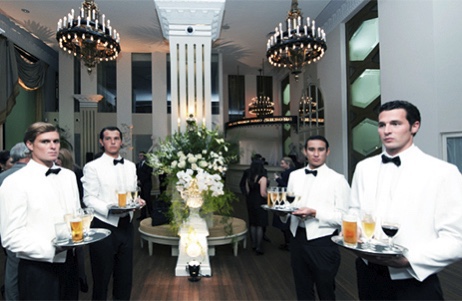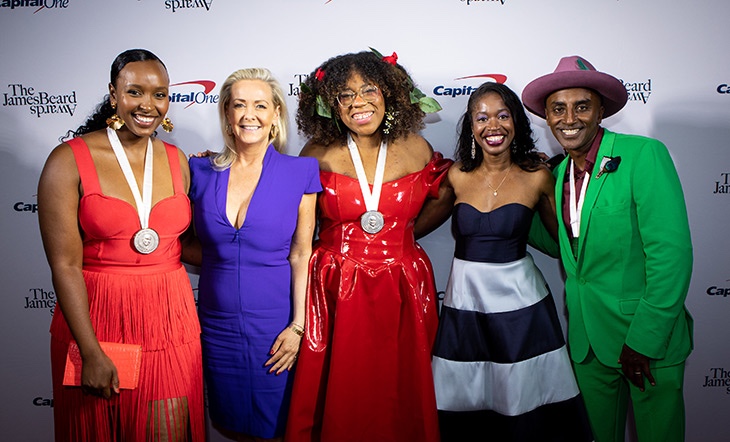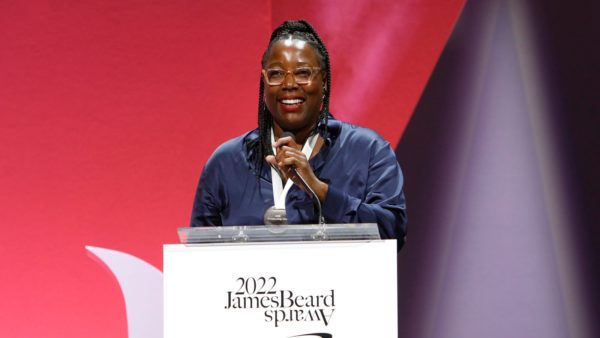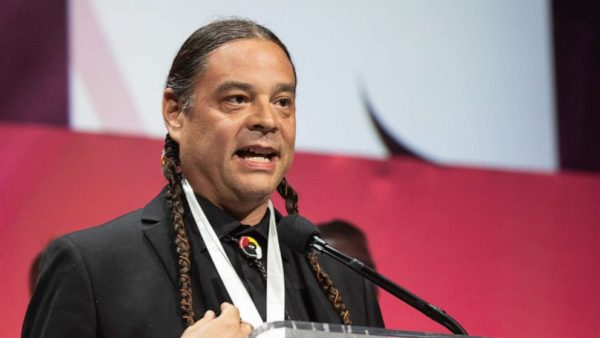I had a server recently who had such virtuoso command of the table, such mastery of her craft, that I could only sit back and admire her skill. She greeted us with the perfectly calibrated balance of cheerfulness and poise, recited specials eloquently, answered menu questions with aplomb, and recommended featured cocktails—including a selection of “adult slushies,” so convincingly that I ordered one as if I’d been hypnotized. I wasn’t the slightest bit embarrassed as I slurped down something that tasted like a sugary, guava-tinged frosé.
While under this waiter’s spell, a perverse thought crossed my mind. She floated by the table again to check back on our entrees, and I found myself daydreaming about her corralling a table of feral guests and hogtying them with a stealthily sadistic charm. Even the most rabid patrons would be no match for such a competent and confident server. I couldn’t stop thinking about how thrilling it would be to see her dog-walk rude or entitled people.
That was always one of my favorite things to do with troublemakers when I waited tables. There’s a special joy you get waiting on unruly guests—when you so skillfully conceal your contempt that they can only marvel at how warm and hospitable you are. I miss being so damn good at my job that no one, not even the most ornery douchebag, could possibly knock me off my center. When you take those people’s money, the grift is euphoric.
Having had some time away from restaurant work now (I was a fine dining server for two decades), I would describe the healing process as very similar to going through a difficult breakup of a long-term relationship. In this case, it’s not totally clear who broke up with whom. The pandemic was a catalyst for our divorce, but it’s safe to say that neither of us really ever loved each other in the first place. We both put on a convincing act for over two decades—an exhausting marriage that probably should’ve ended years ago. I’m still not quite sure how we managed to stay together so long. I guess the sex was good, occasionally, and when it wasn’t, the money made up for it.
Most of the reasons I have for enjoying working in restaurants, however, have nothing to do with the work itself. I certainly don’t miss coming home smelling like grilled meat or having to launder my white shirts three times to get the random sauce stains out. There’s a special camaraderie among a restaurant staff that’s difficult to explain if you’ve never been a part of it. Even when those bonds are tenuous, they’re still much stronger than conventional workplaces where colleagues are quarantined behind their desks like windowless animal shelters. In restaurants, you work in open trenches like a soldiers in a platoon. It’s always us versus them, and we instinctively protect our tribe.
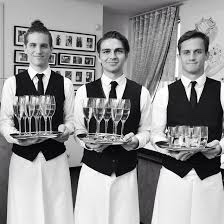
There’s an impermanence to working in restaurants which makes it more tolerable than other careers. Restaurant jobs are disposable—we try them on like outfits and get bored with them easily—although it’s become a far more serious profession in recent years. Unless you get sucked into management, most restaurant people aren’t looking for long-term relationships. When a restaurant wants a deeper commitment, we usually break up with them and hook up with another restaurant that’s willing to respect our need for space.
As glorious as life after restaurants has been for me at times—a recovering hospitality professional—I do miss some things about my restaurant career. I miss staff meals. No, not the food. It’s usually atrocious. I miss breaking bread with fellow staff every night, and how it fortifies the deep bonds we share. The staff meal table is where you learn about each others’ dreams and passions, stumbles and failures, relationship drama, or just work gossip. We call them “family meals” for a reason. It’s like having dinner with your adopted family every night. Love them or hate them, they’re your family.
That camaraderie carries over to the end of the night, which I also miss—the never-ending late night bar crawls, punctuated by round after round of drinks you buy for each other. The worst shift can always be ameliorated by a raucous night out with the staff—whether it’s cheap beers and pickle-backs or a full-fledged dinner that starts at 1am. We appreciate good food, and we aren’t afraid to treat ourselves when the moment is right. We’ll never feel guilty about blowing an entire night’s earnings with our mates after work.
I miss learning. Outsiders think working in restaurants is vocational, but the best restaurant jobs are academic—where restaurants function as universities of flavor that educate staff about food, wine, and spirits. Working in restaurants teaches you to respect good food. You’re exposed to wines of the world, craft cocktails, ingredients you’ve never heard of, and recipes that help you become a better home cook (and you don’t need to work in the kitchen of a restaurant to learn those lessons).
I hate to admit it, but there’s even a part of me that also misses the connection with a table of appreciative guests that value the knowledge and passion behind great service. The artificial nature of a server’s warmth can often inhibit this bond, but appreciative guests can always disarm disgruntled waiters. As much as disaffected guests would often ruin my night, a fun table could always enrich it.
My restaurant career wasn’t all glorious, of course. No one’s is. But it’s easy to look back and dwell on the most dreadful parts: coke-head managers, derelict owners, entitled patrons, and sore feet. But, at the end of the day, I know I could never have survived as long as I did unless there were many aspects to the job that thrilled me. Although I have no plans to rekindle my romance with restaurants any time soon, I can’t lie, I miss some of the fun times we had together.

